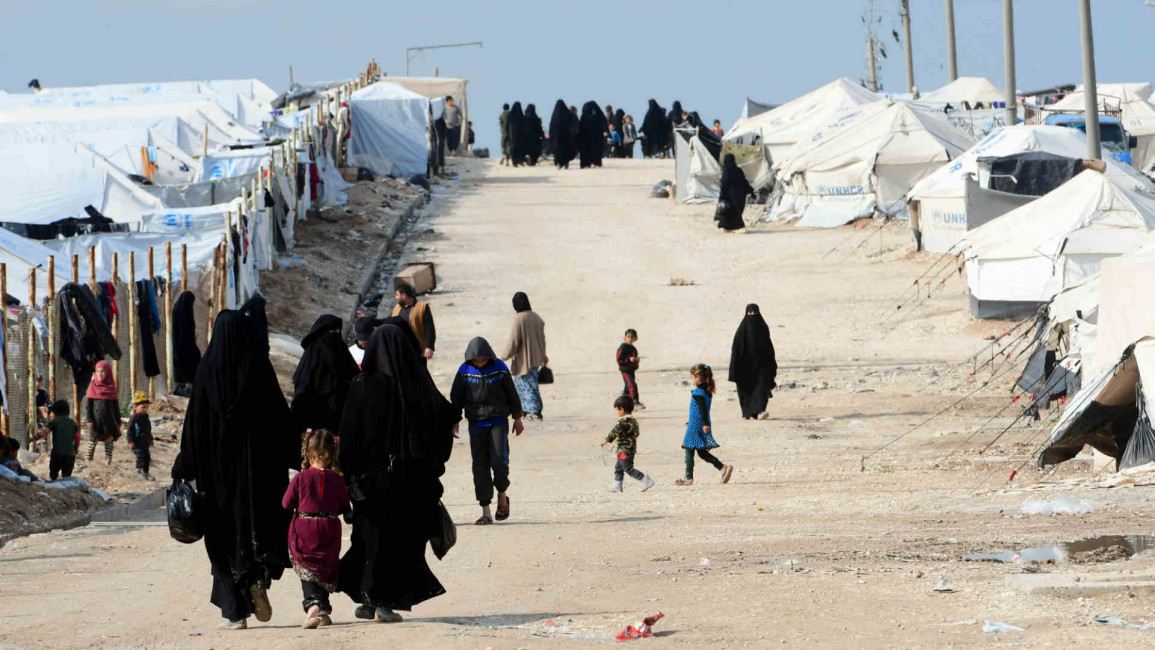Kosovo women repatriated from Syria placed under house arrest
Nineteen women repatriated to Kosovo from Syria were put under house arrest after prosecutors said they were suspected of joining or taking part in the conflict there as foreign militants.
The 19 women appeared in court in Pristina, a day after 10 other women were also put under house arrest. None have been charged with a crime.
Four alleged fighters, all men, were arrested the moment they were brought to the country.
On Saturday, 110 Kosovar citizens - the four alleged foreign fighters, 32 women and 74 children - were returned to Kosovo from eastern Syria with assistance from the United States, the first such move for a European country.
Authorities say there are still 87 Kosovar citizens in Syria.
In total some 300 Kosovars out of a mostly-Muslim population of 1.8 million joined jihadists in Iraq and Syria, making Kosovo one of Europe's highest per capita contributors of foreign fighters to the conflicts there.
Around 70 died abroad and an estimated 120 have come home, with most arrested on their return.
At the time of their return, the justice minister said the women and children were "innocent victims," and the state had plans to rehabilitate them.
The US-backed Syrian Democratic Forces militarily defeated Islamic State militants in Baghouz, their last territorial holdout in Syria, last month, arresting hundreds of women and die-hard fighters in the last days.
The SDF has also been detaining hundreds of foreign fighters from battles against IS and has appealed to their home countries to take them back. Kosovo became the first European country to do so.
Around 2,000 foreign Islamic State (IS) fighters are believed to be detained by US-backed forces in Syria, CNN reported last week.
Countries around the world have been grappling with how to repatriate citizens who fought with the Islamic State group, including children and wives of militants who want to return.
In March, France for the first time brought home five children amid massively hostile public opinion.
In the most high-profile US case last month, Hoda Muthana, a young woman from Alabama who joined the Islamic State group, was stripped of her citizenship on the basis of her father's former diplomatic status.
Read also: Meeting the Islamic State families held in desert camps
Many women and children like Hoda are living in the al-Hawl camp in Syria which has a current population of over 70 thousand people, 65 percent of whom are children under the age of 18, according to the UN.
The camp's population - which has grown by more than 60,000 since December, is made up of 15 percent foreign nationals.
The SDF has warned it is struggling with the intake of vast amounts of people from former IS-held areas and has called on countries to repatriate their citizens to ease the burden on Syria.
The UK has gone so far as to strip Islamic State group proponents of citizenship as it did with the case of Shamima Begum.



